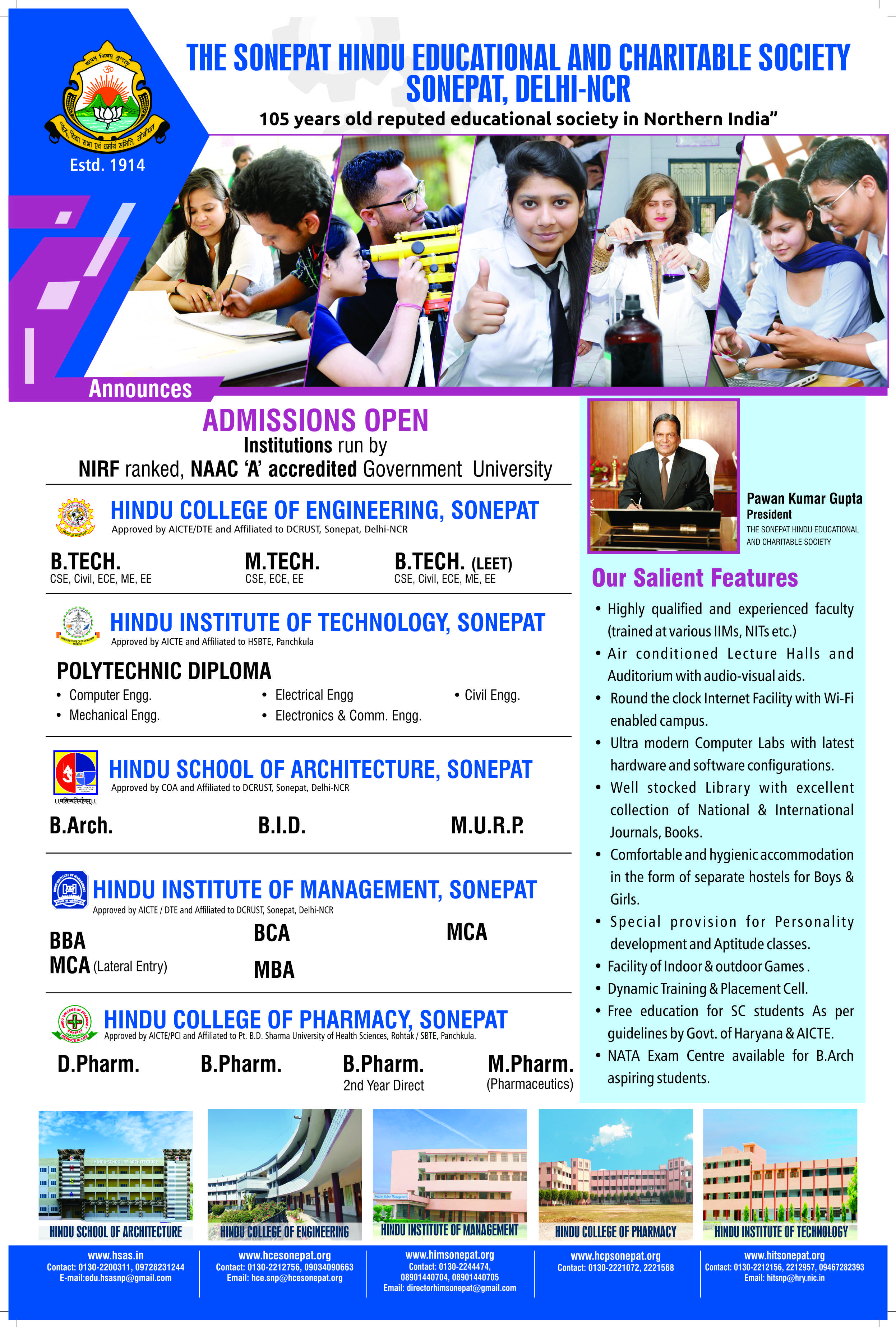

CAMPUS NCR-DELHI
NAAC 'A' grade University
Electronics & Communication Engineering LABS
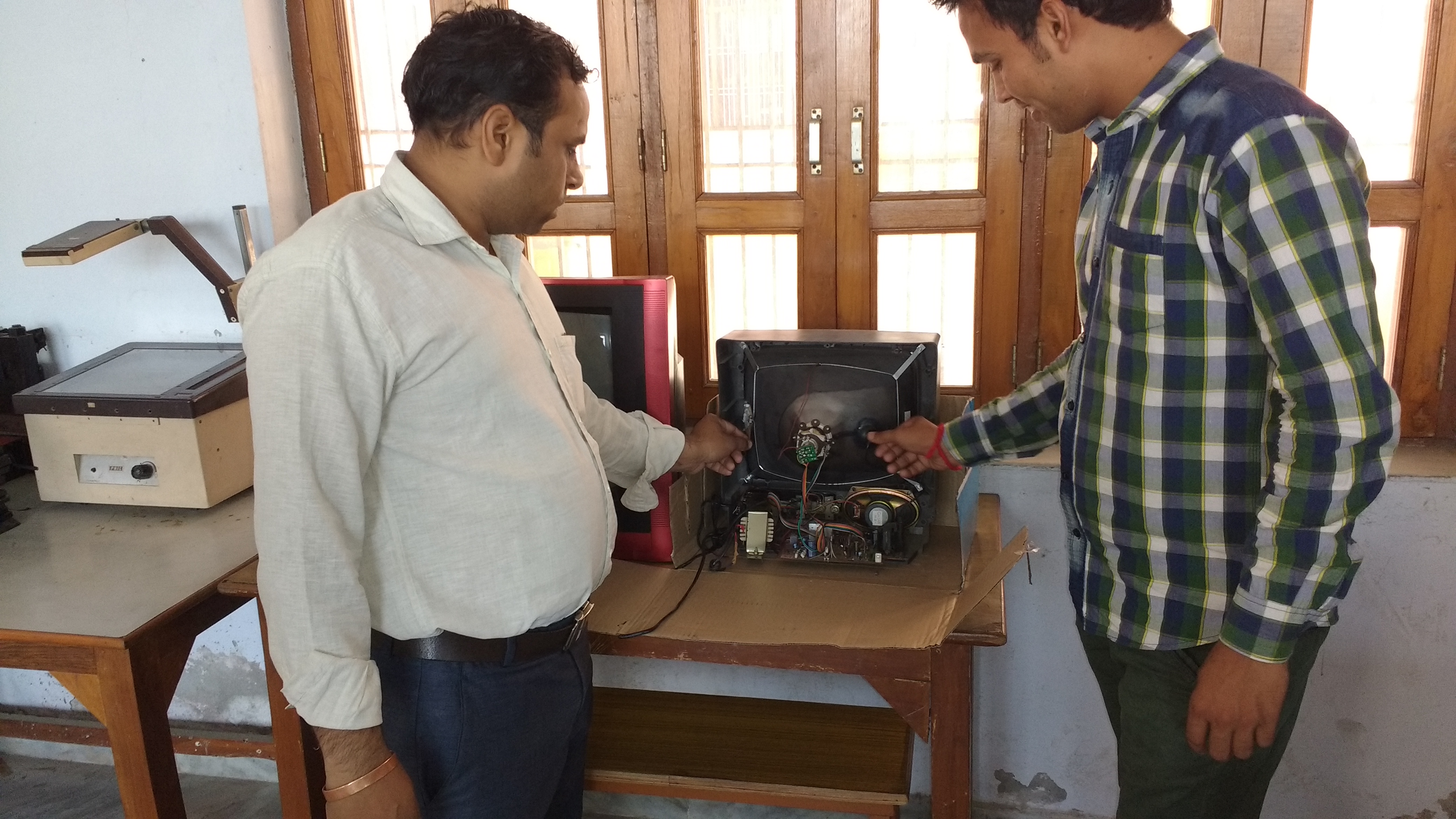
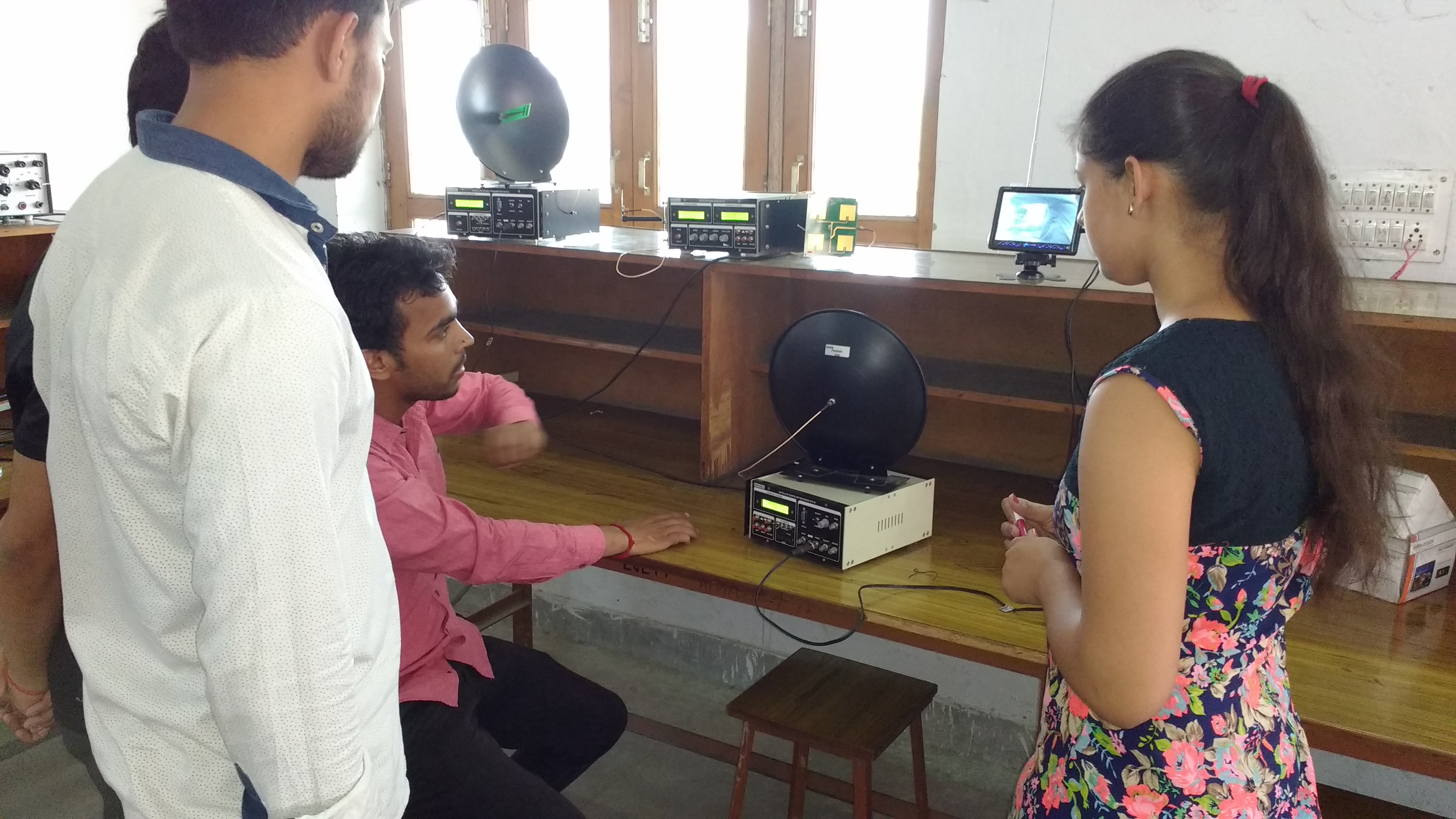
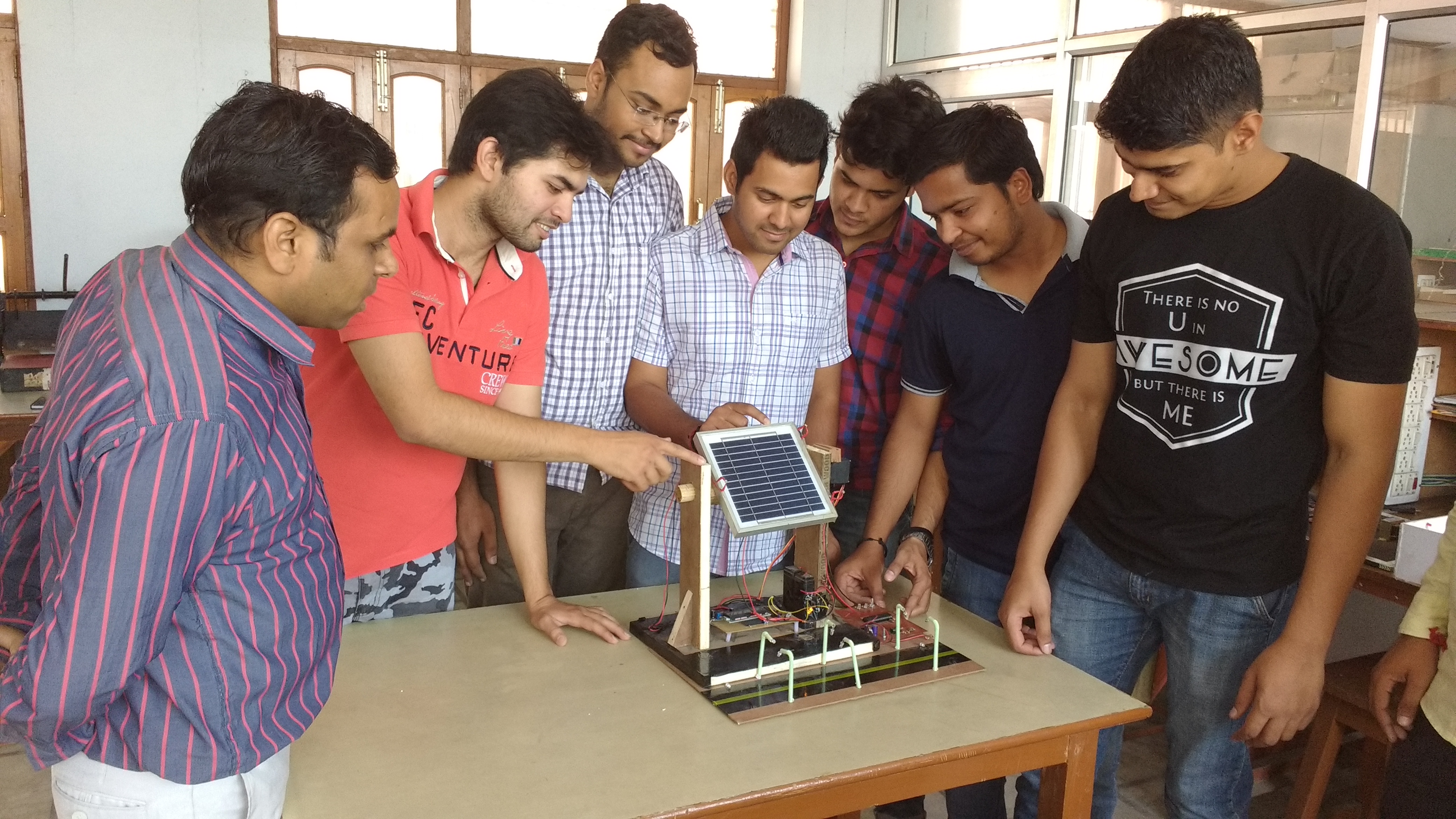
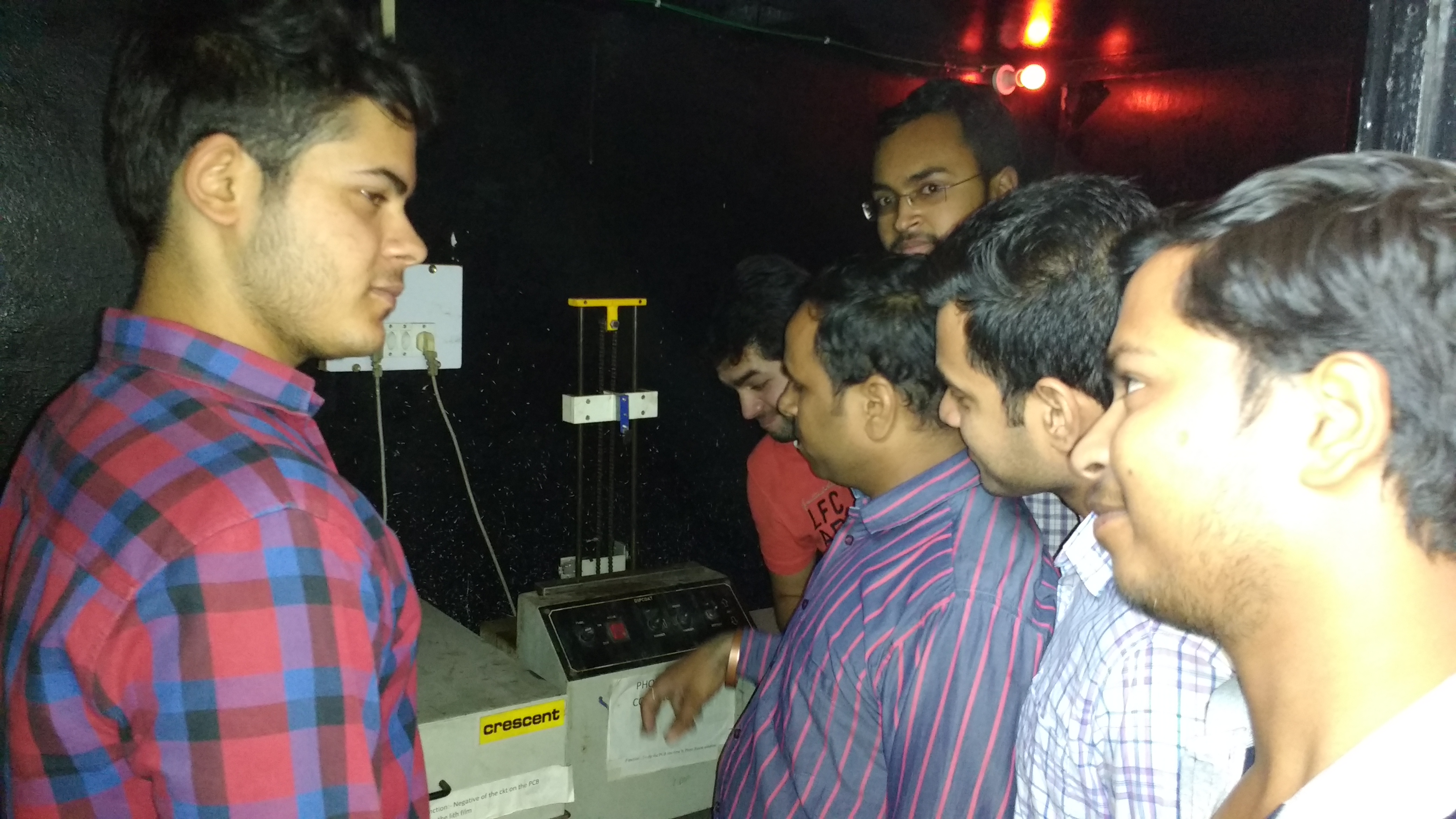
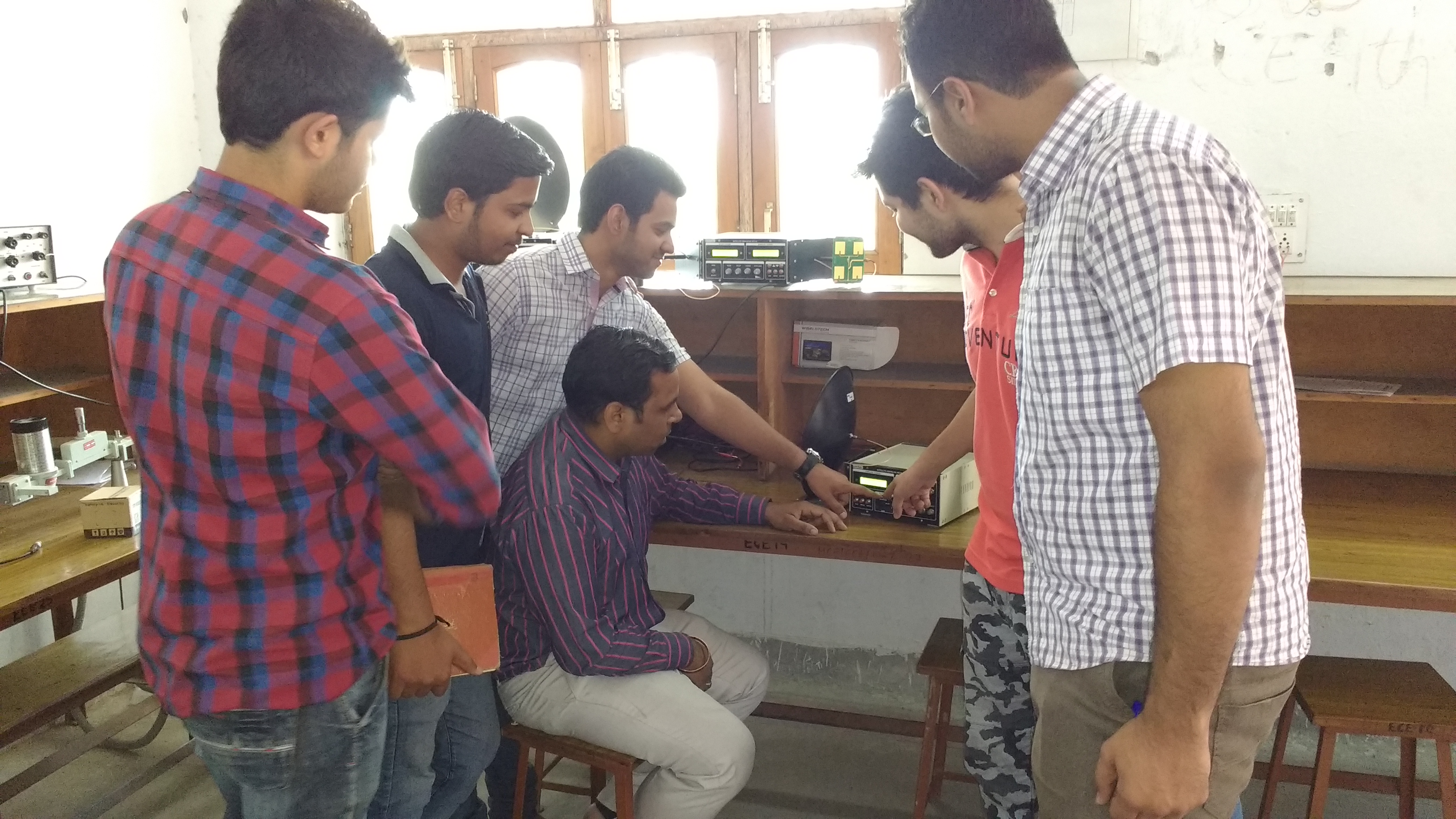
1. BOE LABORATORY: This lab will be attended by the first year students of all the branches. In this students can perform those experiments that are related to topics covered in basic of electronic subject. In this lab. Students are expected to compare experimental results with theoretical concepts and speculate reasons of discrepancies for various active components like diodes, bipolar transistors, and operational amplifiers. This lab also covers the digital logic basic. The lab is well equipped with all the instruments required for performing the prescribed list of experiments like CRO, Function Generator, BJT Kits, Digital Trainer Kits, power Supplies etc.
2. ANALOG ELECTRONICS LABORATORY: Analog electronics mainly deals with diode applications (rectifier, clipper, clamper, and regulator), BJT applications (CE & CC amplifiers), FET applications (CS & CD amplifiers). Another lab named Analog Electronic Circuits (AEC) mainly contains detailed experimental study of OP-AMP applications and different types of Oscillators. All the experimental kits related to above applications are available in the Lab. Experiments as per DCRUST syllabus guidelines is performed by each student with the help of Lab Instructor and concerned faculty.
3. MICROWAVE ENGINEERING LABORATORY: This laboratory introduces the student to microwave fundamentals and measurement at microwave frequencies. Emphasis is on Waveguides, microwave components, generator, SWR measurements, impedance matching, microwave semiconductor devices etc. Practical demonstration of the theoretical concepts enhances the understanding of the students. The experiments are included in the curriculum to cover majority of the microwave measurements studied in theory. The laboratory is well equipped with microwave benches, SWR meter, CRO, microwave components as direction coupler, E Tee, H Tee, Magic Tee, detector mounts, circulator, Gunn diode and klystron generator etc. All the experiments are well documented with clear block diagrams, theory and procedures involved, so that the students are able to perform the experiments with ease and proper understanding.
4. DIGITAL SYSTEM DESIGN LABORATORY: This lab is intended for the undergraduate students of Electronics & Communication Engg. & Computer Science Engg. The main objective of this lab is design, implementation, and debugging of digital logic circuits, use of computer-aided design tools for schematic capture and simulation and implementation of complex circuits using programmable logic devices (PLDs). The students will become familiar with specifications and implementation of digital systems using hardware description language VHDL. The primary CAD software used in the lab and in homework assignments will be XILINX ISE 12.4. The students will be assigned a number of hardware and simulation assignments and a series of digital system design projects of increasing complexity and difficulty. After the completion of the lab students will be able to analyze and design digital systems using CAD tools and implement them on Digilent Spartan 3E Starter Kit.
5. SATELLITE COMMUNICATION LABORATORY: This lab deals in the comprehensive study of Satellite communication system. It is equipped with a satellite transponder, a transmitting and a receiving earth station. To facilitate this, there is a camera to capture and transmit video to the transponder and a TV to check the quality of the received picture via satellite. There is a microphone to perform the testing on the voice signal. A function generator and the oscilloscope are also provided in the lab for the generation and display of transmitted and received signals. Different types of antennas are available in the lab to be used with the transponder and the earth stations. Digital modulation kits are available to study different digital modulation techniques used in satellite communication. A detailed Lab manual on satellite communication is available to help students to improve their understanding and practical implementation of experiments.
6. COMMUNICATION SYSTEM LABORATORY: This lab provides the knowledge of fundamental elements of communications systems hardware. The lab is equipped with CRO, Signal generator, Amplitude Modulation & Demodulation Kit, Frequency Modulation & Demodulation Kit, Pulse Width Modulation & Demodulation Kit, Pulse Amplitude Modulation & Demodulation Kit, Pulse Code Modulation & Demodulation Kit, Pulse Position Modulation & Demodulation Kit, FSK Modulation & Demodulation Kit, PSK Modulation & Demodulation Kit, Digital TD Multiplexing & Demultiplexing and Delta Modulation & Demodulation kit. A comprehensive Lab Manual is available, which is almost self explanatory. All the experiments are well documented and include the circuit diagrams, block diagrams, theory and procedures to help the students to perform the experiments with proper understanding.
7. ELECTRONIC MEASUREMENT AND INSTRUMENTS (EMI) LABORATORY: Students in this lab. will do the detailed experimental study of various transducers for measuring various physical quantities like Distance, Pressure, DC motor speed using LVDT, LDR, Strain guage, Piezo Electric, Magnetic and Electric pickups All the experimental kits related to above applications is available in the Lab. Experiments as per DCRUST syllabus guidelines is performed by each student with the help of Lab Instructor and concerned faculty.
8. EMBEDDED SYSTEM DESIGN LAB: The embedded system design laboratory is used by students to design various hardware using microcontroller. Students in this lab learns the fundamental of writing embedded programs in assembly language as well as in high level language like C/C++. Various kits available for experiments in this lab are Universal micro-controller boards, Temperature Measurement board, Traffic Light study board, Speed Control using PWM for DC motor, Motion Control of a CAR model.
9. DATA COMMUNICATION LAB: The field of Computer Networking is making rapid advances. Labs in Data Communications and Networking are now offered on a regular basis in Electronics and Communication Engineering. The Lab generally includes topics in data communications, computer networking, and internetworking. Computer simulation has been shown to support this course very successfully. Network simulation software allows students to create models of different networks, their protocols and workloads. Lab consist of a number of useful hardware and software including: LAN Training System Consisting of: LTS-01, L-SIM, Wireless LAN card-4 & Cables, Data communication trainer, QPSK/DQPSK Modulation and Demodulation Kits, QAM/DQAM Modulation and demodulation Kits.
10. ELECTRONICS CIRCUIT SIMULATION LAB: Electronic circuit simulation uses mathematical models to replicate the behavior of an actual electronic device or circuit. Simulation software allows for modeling of circuit operation and is an invaluable analysis tool. Lab is fully equipped with Orcad15.7 Software with hardware dongle as license.
11. MICROPROCESSOR & INTERFACING LAB: This lab provides technical information about 8 bit and 16 bit microprocessors to the students. A lab manual with some programming examples on microprocessor is also provided to facilitate students to understand the logic of programs. For 8085 microprocessor programming, VMC-8506 kit is used. Various I/O chips available on the kit are 8279, 8255, 8253, 8251 and 8259. The experiments included in the curriculum cover all the concepts of programming studied in theory. Some additional experiments are also included. Practical demonstration of the programming enhances the understanding of concepts of the students. The students are provided with a comprehensive Lab Manual, which is almost self explanatory and helps students to perform the experiments with ease and proper understanding. Some new 8085 kits with external keyboards have also been purchased which will further strengthen the practical capability of the students.
12. INTERNET LAB: The Lab provides users with secure and anonymous access to content available on the internet and mobile devices, and tools to investigate, capture, and preserve that content. The Lab does not solicit information directly from consumers, except in limited undercover situations. The Lab provides users with access to the Internet via multiple high-speed internet connections. The Lab provides users with access to a select group of pre-approved mobile devices that can connect to the Internet through the Lab's WAP, external Wi-Fi hotspots. Users may request to use mobile devices outside the Lab.
